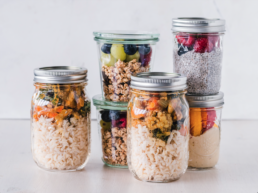By Karalyn Cass, First Mile Care DPP Coach and Program Coordinator
Many people are not fully aware of the important role that sleep plays in maintaining a healthy weight. In the First Mile Care Diabetes Prevention Program (DPP), coaches emphasize the basics of good sleep hygiene. As I explained in an earlier article and webinar on sleep habits, sleep is closely connected to both weight gain and loss, as well as how your body reacts to insulin, the hormone that controls your blood sugar.
Your body repairs, recovers, and restores many functions during sleep that influence how much energy you have during the day. Sleep affects two hormones — ghrelin, which tells your body when you need to eat, and leptin, which tells your body that you’re full. When you’re sleep-deprived, your body will end up with too little leptin and too much ghrelin. Your brain will tell your body to stop burning calories and that you need to eat. You’ll feel hungry even when you don’t really need food.
The general recommendation for a healthy amount of sleep is 7-9 hours a night. Sometimes, though, you can use a brief period of sleep during the daytime to re-energize the body. Napping can help with drowsiness, relaxation, mood improvement, better concentration, a sharper memory, and creativity — hence the nickname “power nap.”
In some countries, especially ones with hotter climates, napping is part of the traditional culture. (Noel Coward wrote an entire patter song about it.) While nap rooms have become a popular benefit in some larger companies for employees working odd hours, for most people with an 8-5 job, “siesta time” is a luxury to indulge on weekends, during vacations, and after big holiday meals.
Forty winks
It’s best to avoid frequent or excessive napping. The ideal nap is a short one in which you fall asleep quickly and wake feeling refreshed.
- Timing is everything: Napping before 3pm will take advantage of your natural sleep-wake cycle and be less likely to interfere with nighttime sleep.
- Keep it cozy: There are people who can nap anywhere, but a quiet, comfortable place will contribute to drowsiness.
- Make it quick: Avoid napping for more than 10 to 20 minutes — set an alarm to avoid falling into deep sleep. Some power nappers can sleep as little as five minutes and still feel a benefit. Anything longer may hinder the five stages of sleep and leave you feeling groggy.
If you’re getting the recommended amount of sleep each night, you probably won’t need a nap on a regular basis. For people with erratic work schedules or who know they will be temporarily losing sleep (e.g., taking an early or late flight, vacation, etc.), a nap is helpful to recoup those lost zzzzzz. But naps aren’t for everyone, as some people find it easy to glide into a quick midday siesta while for others, it’s challenging to enter and leave a state of unconsciousness. And napping is not a long-term solution for people who suffer chronic insomnia.
Getting your shut-eye
An occasional nap of 10-20 minutes is not bad for your health. If you are sick, you may need to nap to aid your recovery, and for longer periods. Babies and young children also take long naps to give their body time to develop.
But if you’re an adult and need frequent naps, poor sleep at night is most likely the root cause. Consider frequent napping as a warning sign and reflect on what you can do to improve your sleep in terms of quality as well as quantity.
Paying attention to your sleep patterns and trying to establish good sleep hygiene is key. Here are a few things to consider:
- Scheduling: Establish a consistent sleep schedule that ensures the recommended amount of sleep, even on weekends.
- Relaxation: Create a relaxing sleep environment: bed, pillow, temperature, etc. Reserve your time in bed for sleep and sex only, and avoid eating, working, or other activities.
- Movement: Get the recommended amount of exercise during the day. Physical activity can reduce stress and settle your mind, helping you to fall asleep faster and improve sleep quality.
- Limitations: Avoid the following in the evening hours before bedtime:
If you’re getting the recommended 7-9 hours of sleep each night yet are still feeling sleepy during your normal day, that could be an indicator of a hidden health problem. A recent study published by the American Heart Association found a link between older adults who napped and a higher risk of high blood pressure and stroke. Yet, experts recognize that the nap itself may not be the problem, but a symptom of poor nighttime sleep or other health factors. Make sure to talk to your physician about any underlying health issues that could be interfering with your sleep.
To learn more about how you can benefit from the First Mile Care Diabetes Prevention Program, take the prediabetes risk test and get started today!



